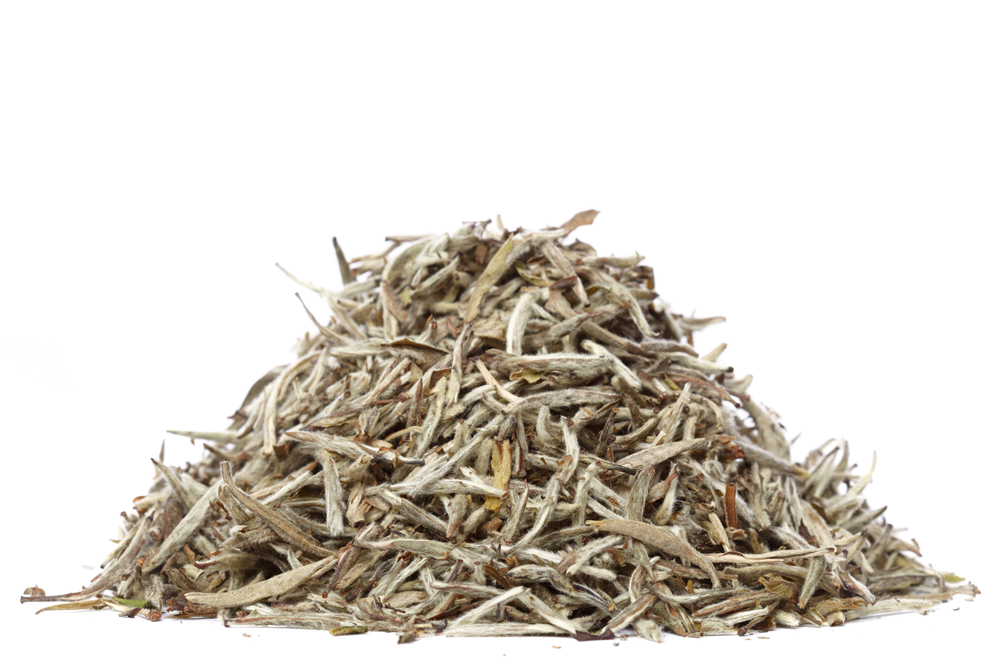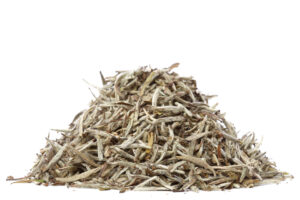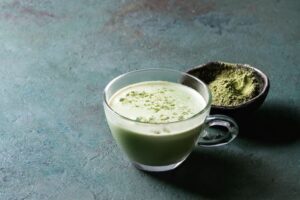This is a common question, so we’re going to answer you once and for-all, does white tea have caffeine?
The answer is yes, it does. However, it has the lowest amount of caffeine compared to other tea types. For example, a cup contains anywhere from 6-25 mg of caffeine, where a cup of black tea contains 15 to 30mg.
Stay with us while we explore how the caffeine content of white tea compares to other hot beverages.
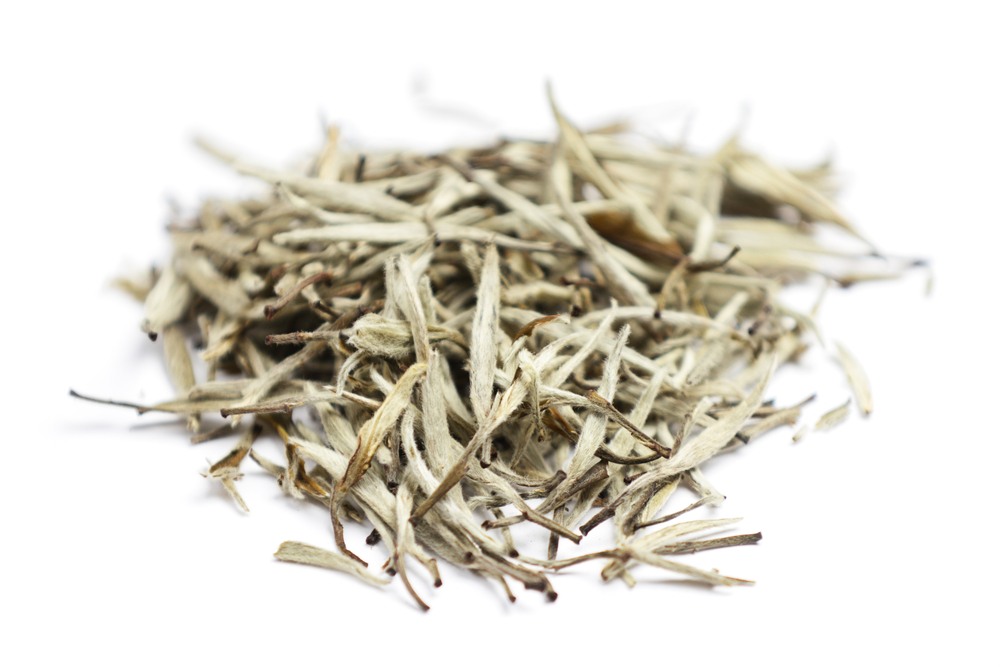
What is White Tea?
The preparation of white tea starts from the Camellia sinensis plant’s youngest leaves, the plant used in the production of all traditional teas. Manufacturers make white tea either from fully developed tea leaves or a mixture of developed leaves and fresh buds. China is mostly where it is cultivated, however, several developing tea-growing nations, such as Nepal, also produce it for the international market.
But unlike other tea flavors, it receives the least processing, substantially altering the taste and caffeine content. Farmers harvest the leaves at the beginning of the season (March-April) from the tea plant’s unopened buds and freshest, youngest leaves (commonly referred to as silver needle or silvertip white teas). You can notice the silver hairs on the buds of these tea leaves if you take a closer look at them. This strain’s long, thin buds tend to stretch and unroll when prepared for consumption.
Silver Needle
Authentic Silver Needle tea is one of the most costly and challenging to find. There are more than 4,000 hand-sorted leaves in a pound of this tea — that’s how many buds farmers harvest from Fujian, China. There are several health advantages of drinking silver needles since the buds of the tea contain antioxidants and other healthy substances.
White Peony
Compared to the silver needle, white peony tea comes only from the plant’s fresh buds and tips. White peony may thus be made from a broader range of tea kinds than only those that yield an abundance of big buds.
For this reason, the white peony tea has a greener flavor, similar to the taste you get from drinking green tea. Moreover, white peony does not undergo an oxidation process.
Shou Mei
In Shou Mei, you’ll find a few buds that are still developing, as well as some leaves that are older than those utilized in White Peony. Thus, it contains less caffeine than other white tea varieties. The flavors are a little more complex, but they’re still light and airy. Compared to delicate silver needles, they’re more like green oolongs.
White Darjeeling Tea
This type is a popular alternative to conventional Chinese white teas. Darjeeling, India’s tea-growing area, is the source of this white tea. Mostly, people refer to the Darjeeling white tea as the “champagne of teas.”
What is Caffeine and How Does it Affect My Body?
Caffeine is a natural stimulant most commonly found in tea, coffee, and cacao plants. It works by stimulating the brain and central nervous system, helping you stay alert and prevent the onset of tiredness.
Some people can be very sensitive to caffeine and feel jittery, agitated, restless, and unable to sleep if they consume too much. The amount of caffeine that an average adult should consume to stay in the healthy range will be dependent on a variety of personal circumstances and individual situations.
Studies have shown that up to 400 milligrams (mg) of caffeine a day appears to be safe for most healthy adults. That’s roughly the amount of caffeine in four cups of brewed coffee, 10 cans of cola, or two “energy shot” drinks.
Benefits of Caffeine
The health benefits of caffeine have been under a lot of investigation.
Some studies say caffeine may improve your mood, decrease the likelihood of depression, stimulate brain function, and protect against Alzheimer’s Disease or Parkinson’s Disease.
This is an area that needs to undergo more testing, but caffeine has also shown to have some positive effects on weight loss and metabolism boosting.
Downsides of Caffeine
Like most things in life, too much can be bad for you. Excessive amounts of caffeine have been noted to raise blood pressure, increase heart attacks, insomnia, indigestion, and increase headaches.
More research is needed in this field, but it’s suggested not to exceed 400 milligrams (mg) of caffeine a day and always to seek medical advice about any concerns you may be feeling about your diet.
Is all White Tea Caffeine Free?
Common misconceptions for tea are that white tea has no caffeine or that all tea has the same amount of caffeine as other caffeinated drinks.
This simply is not true; while all tea naturally contains caffeine, it’s not uniform across the board. Many different variables affect the caffeine levels in teas.
White tea, like other teas, includes caffeine, polyphenols, L-theanine, and a variety of different tea flavors.
Herbal tea is caffeine-free. Chamomile tea or sleepytime tea has been known to aid sleep and assist in relaxation to prepare for restful sleep. If you are particularly sensitive to caffeine, try a naturally decaffeinated white tea or herbal tea.
How Much Caffeine in White Tea VS Other Drinks:
Generally, black tea contains more caffeine than white and green tea. But, this is not always true. In essence, the caffeine level of various teas varies substantially, regardless of the kind of tea.
White tea has quite a bit less caffeine than that of any other tea or caffeinated beverage. It contains only 5mg more caffeine than decaf tea.
There are other caffeinated beverages that are higher in caffeine than teas, such as coffee, cola, and energy drinks. While both tea and coffee have caffeine, all teas have a lower caffeine content than coffee after brewing. Coffee has a significant advantage in terms of caffeine levels, with an 8oz serving holding nearly twice as much as a cup of tea. Unlike coffee, white tea’s caffeine has a mellower and more gradual impact on the body.
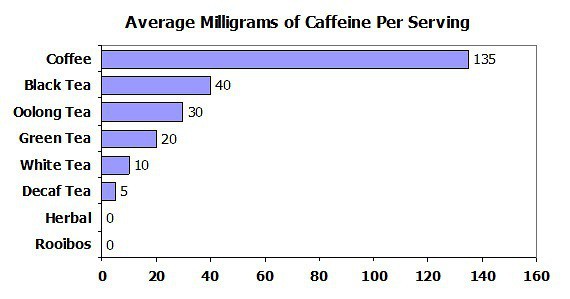
Why Does White Tea Have Less Caffeine?
Oxidization is the key factor in how much caffeine gets into your cup of tea. White tea is not oxidized at all compared to black or Oolong tea. Even green tea has had the chance to oxidize further than the early buds of white tea.
The further along the tea leaf is in the process of oxidation, the more caffeine will be released during brewing. Not being oxidized means caffeine remains in the leaf, leaving the brewed water with minimal amounts of caffeine.

This makes it the perfect option if you are concerned about tea impacting your sleep quality. To reduce caffeine content even further, you could also try to make your tea weaker by letting it steep for less time or adding more water or milk to dilute the caffeine content.
So, you can tap into the of white tea at any time of the day! The fact that it’s closing in on bedtime doesn’t mean you can’t enjoy your favorite white tea, ensuring you don’t miss out on its powerful health benefits.
Yes White Tea Has Caffeine… But!
Unless you are extremely sensitive to the effects of caffeine this tea should not make a difference to your sleep quality.
If you are looking to find some EXCELLENT white teas to taste, we’ve compiled a list of the best ones we’ve come across, and we invite you to take a look once you’ve had your questions answered on this page.
White tea’s flavors are quite subdued normally, try mixing your loose leaf white tea with peppermint or chamomile for a perfect cup of tea before bed. Especially considering that chamomile tea can help lower blood sugar!
Happy Sipping

